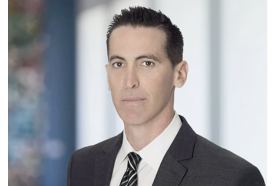Cannabis Now reports
The Alaska Supreme Court will clear the records of about 750 cannabis convictions from a state database in a move to help protect past offenders from the negative impact of a criminal record for conduct that’s no longer against the law. Under an order signed by the court’s five justices in January, records of past marijuana offenses will be removed from Courtview, the state’s online database of court cases, on May 1.
The court’s action continues the push to expunge convictions for cannabis-related offenses in states that have legalized marijuana in an attempt to mitigate the harms caused by years of cannabis prohibition and the War on Drugs. The order applies to cases in which the defendant was at least 21 years old, and possession of up to one ounce of cannabis was the only charge.
Legislative attempts by lawmakers to remove cannabis convictions from Courtview have so far been unsuccessful, although bills are pending for the current legislative session. The action by the Supreme Court largely accomplishes the goal, but the new policy doesn’t remove the records of cannabis-related convictions from all state databases. Attorney Jana Weltzin said the move is a positive development for cannabis policy reform efforts in Alaska.
“If you’re older than 21 and you violated simple marijuana possession—meaning marijuana under an ounce—and you had it on your person, and it’s not connected with any other crime, then the Supreme Court of Alaska says we’re removing those from Courtview,” Weltzin told local media.
Nancy Meade, general counsel for the Alaska Court System, said that the change originated with administrative staff and was considered by the justices through the Supreme Court’s normal procedures.
“Given that (cannabis) has been legal for eight years, it appeared to the Supreme Court that this was an appropriate time not to have people, as I say, suffer the negative consequences that can stem from having your name posted on Courtview,” Meade said in a statement quoted by the Alaska Beacon. “Because the conduct is considered legal right now,” she said.
Court’s Order Doesn’t Affect All Conviction Records
The decision by the Supreme Court doesn’t expunge past cannabis convictions from the state’s criminal records, which are maintained by the Alaska Department of Public Safety (DPS). Officials clarified that information on such convictions would still be available at courthouses for inspection by members of the public and through formal background checks.
“The court system isn’t the official criminal record repository for the state of Alaska,” Meade said.
Records of arrests and convictions can have an impact on the ability of past offenders to secure employment and housing. But past legislative efforts to remove cannabis conviction records from Courtview haven’t been approved by lawmakers.
“A lot of folks in my district, they have these barriers that are put in place, and a simple rule change, policy change, legislation, could change it for their entire lives,” said Republican state Rep. Stanley Wright.
Last year, the Alaska House of Representatives approved a bill to conceal cannabis convictions from Courtview and criminal background searches by a vote of 30-8. The state Senate, however, failed to pass the bill before the end of the 2022 legislative session. A similar bill to shield cannabis convictions was pre-filed for the 2023 session by Wright on January 19, less than two weeks before the Supreme Court’s decision to remove the records from Courtview. Forrest Wolfe, Wright’s chief of staff, said that shielding the records of cannabis convictions can help mitigate the exodus of working-age people in Alaska that has in part led to a labor shortage in the state.
“It’s all about reducing barriers to entry, especially for employment,” Wolfe said. “In Alaska, we have a huge workforce shortage. If you were 21 years old or older, and it was some sort of a nonviolent crime, you were charged with and convicted of, now that cannabis is legal in the state, we don’t think it should be reflected negatively on your record,” Wolfe added.
Wright is reportedly considering whether his bill, which already has bipartisan support from three Democrats and two independent lawmakers, is still needed after the Supreme Court order to remove cannabis convictions from Courtview, while Democratic Sen. Löki Tobin is reportedly considering introducing a similar bill. Unlike the Supreme Court’s policy, which only covers court records, more comprehensive legislation could also protect information on cannabis convictions from being released through criminal background checks. If Wright’s bill is passed, up to 8,500 past cannabis convictions could be affected and hidden from view, according to information from the DPS.
The Alaska Supreme Court has a history of handing down decisions that have protected the rights of cannabis users. In 1975, the court ruled that the right to privacy guaranteed in the Alaska Constitution protects the possession and use of small amounts of marijuana in private residences, effectively legalizing cannabis for personal use.
Alaska Courts Clear Past Cannabis Convictions From State Database


 Cannabis News1 year ago
Cannabis News1 year ago
 One-Hit Wonders1 year ago
One-Hit Wonders1 year ago
 drug testing5 months ago
drug testing5 months ago
 Cannabis 1011 year ago
Cannabis 1011 year ago
 Marijuana Business Daily1 year ago
Marijuana Business Daily1 year ago
 Education1 year ago
Education1 year ago
 Education1 year ago
Education1 year ago
 Cannabis1 year ago
Cannabis1 year ago


















